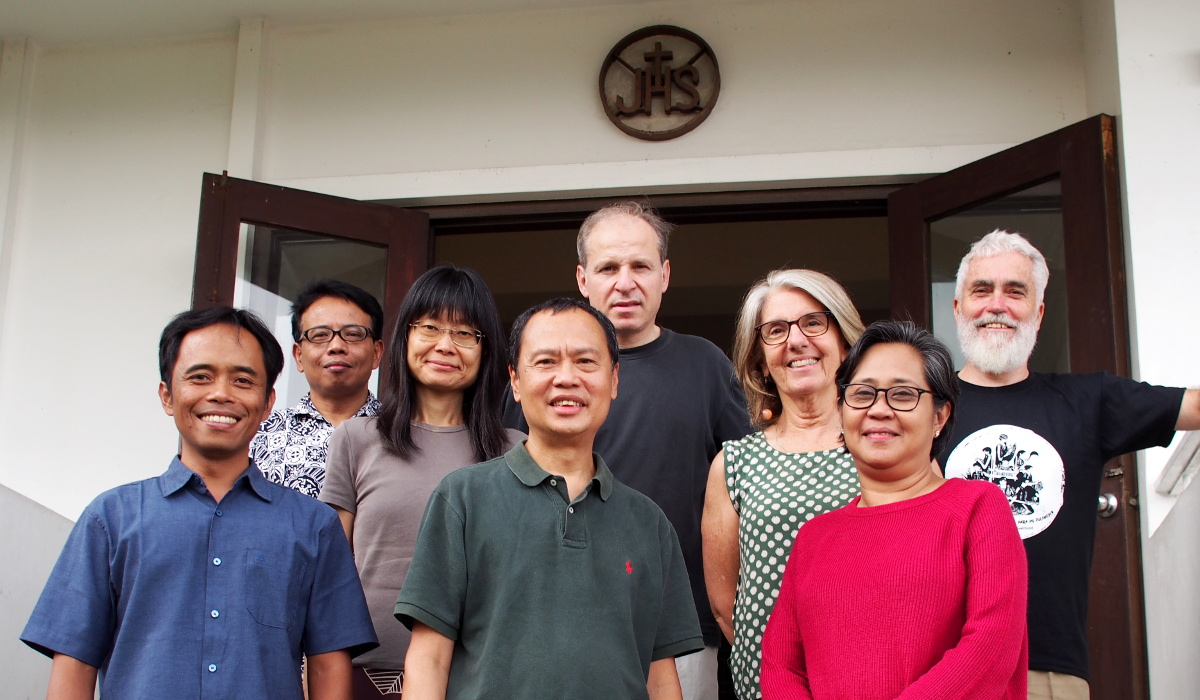With the Universal Apostolic Preferences (UAPs) expected to be unveiled soon, it was a good opportunity for the conference Social Ministries core team to review insights gained over the last few years to help guide plans and programmes for the next few years.
“Our goal is to get a bigger picture of the social ministries situation in the conference by updating on what is happening in our own contexts and to learn from the experience of Fr Benny Juliawan”, shared Fr Adrianus Suyadi SJ, who took over from Fr Juliawan as conference Secretary for Social Ministries at the beginning of this year.
The core team gathered at the Environmental Science for Social Change office at the Ateneo de Manila University in the Philippines for a two-day meeting, from January 30 to 31.
“We learned from Fr Juliawan’s experience that diversity remains a challenge”, said Fr Suyadi. The variety of cultures, socio-political situations and even languages makes it difficult to communicate and develop conference-wide programmes.
For example, in places like Korea and Japan, the focus is on justice and peace building, while in the Philippines, the emphasis is on reconciliation with creation and disaster risk reduction. Moreover, there are Jesuit provinces where it is difficult to develop social ministries because of the country’s political context.
“Much can still be done in the area of collaboration,” said Fr Suyadi. He stressed that Jesuit provinces need to show a stronger commitment to social ministries by allocating resources.
The good news is that sufficient resources and expertise are available. International networks such as Ecojesuit and Justice in Mining can help bring regional concerns to the global level, although certain concerns can be deemed too localised, such as pushing for changes in government laws and regulations, that finding a connection with the global network can be quite challenging.
“Hopefully, having the Universal Apostolic Preferences and the Conference Apostolic Plan will help us develop a common goal. Now is a good time for long-term planning rather than having something that is based on activities”, shared Fr Suyadi.
He looks forward to the meeting in August with the province delegates, when they can be more strategic in their planning in line with the universal and conference priorities. Currently there are 30 Jesuits working in 32 social centres in the conference.
In November, the Society will commemorate the 50th anniversary of the Social Justice and Ecology Secretariat in Rome, and Fr Suyadi said that both Jesuits and lay people working in the social ministries in Asia Pacific will have an opportunity to participate in the event.
“We need to develop collaboration with the laity in dealing with social justice issues because we cannot do it alone”, he shared. “We need to network outside the Society, especially when we need to advocate on a higher level.”


